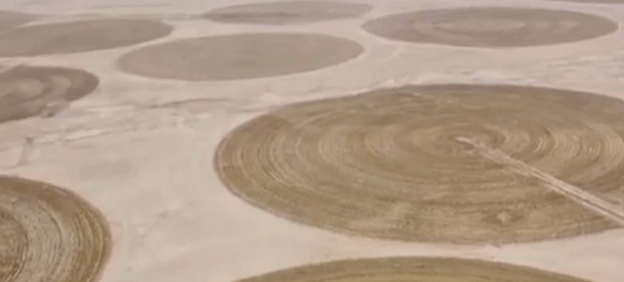In a rare turn of events, Iraq has achieved a bumper wheat crop, with yields exceeding initial expectations by over 1.5 million tons. Thanks to abundant rainfall and substantial government subsidies, Iraq’s wheat farmers have experienced an unexpectedly successful season. For a nation heavily reliant on wheat imports, this domestic surplus is a milestone, reflecting the potential for Iraq’s agricultural sector to reduce its dependence on foreign wheat supplies. However, the financial and logistical challenges accompanying this abundance have highlighted pressing issues within Iraq’s agricultural policy framework.
Iraq, a major wheat importer in the Middle East, incentivized this season’s harvest by pledging to buy wheat from local farmers at a rate nearly twice the market price, offering 850,000 Iraqi dinars (about $650) per ton while intending to resell it at 450,000 dinars. While this price support has motivated farmers, it places a significant strain on government finances. Iraq’s revenue from oil exports, the primary source of its budget, has been volatile, and with expected revenue reductions in 2025 due to falling oil prices, the government faces a $500 million deficit related to its agricultural incentives this year alone.
The government’s ambitious wheat-buying policy comes at a time when Iraq, the second-largest oil producer in the Organization of Petroleum Exporting Countries (OPEC), needs to consider financial austerity. Some experts believe that the government must find a more balanced approach to agricultural subsidies to sustain the sector without further straining its budget. Adel Al Mokhar, a former adviser to Iraq’s parliamentary agriculture committee, criticized the plan, pointing out that overproduction without sufficient storage capacity could lead to waste and unnecessary water usage. Iraq’s farmers have relied on Tigris and Euphrates river irrigation for centuries, but both rivers are under stress due to climate change and upstream activities. The United Nations recently listed Iraq among the five countries most vulnerable to climate change, making food security a critical priority.
With storage facilities limited, Iraq has decided to retain the surplus wheat for domestic use rather than exporting it. This decision aligns with Iraq’s food security goals but adds financial pressure on the government to reduce domestic wheat prices, especially since private importers can often source wheat more cheaply from other markets. The lack of adequate storage infrastructure also means Iraq cannot store an anticipated surplus from next year’s harvest, signaling a need for investment in modern storage solutions.
Looking ahead, the government may have to adjust its wheat procurement prices to manage costs effectively. If the current subsidy scheme continues, Iraq risks unsustainable financial losses and overproduction that could exceed domestic needs. Many experts agree that a recalibration of agricultural policy—one that considers both budgetary constraints and the realities of climate and resource limitations—is essential for long-term agricultural sustainability in Iraq.
Iraq’s record wheat harvest is a double-edged sword: it offers food security benefits but strains the government’s financial resources and logistical capabilities. Without recalibrating subsidies and investing in storage infrastructure, Iraq may struggle to maintain a viable agricultural sector amid economic and climate-related challenges. The lesson from this season is clear—sustainable policy measures are essential for balancing agricultural prosperity with economic stability.
Error




